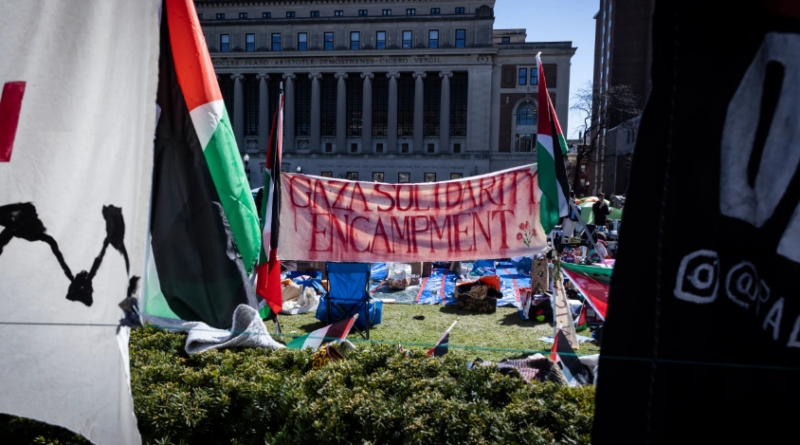Protesters Ask For ‘Amnesty’ After Arrests
In light of the recent pro-Hamas protests taking place on college campuses across the country, questions have been raised regarding the entitlement and demands of the protesters. With numerous arrests and suspensions occurring, some protesters are now seeking “amnesty” in order to avoid any consequences that may impact their future careers.
This issue was brought to light after Maryam Alwan, a college junior at Columbia University, received an email from the university informing her of her suspension following her arrest at the “Gaza Solidarity Encampment.” Alwan’s situation is not unique, as other students involved in the protests are also facing disciplinary actions from their universities.
In response to these suspensions, students and faculty involved in the protests have been demanding “amnesty” for the protesters. They argue that the punishments, such as suspensions and potential legal records, could have serious implications on their future lives and careers.
However, not everyone is sympathetic to their demands. Some argue that these students were well aware of the potential consequences of their actions when they participated in the illegal encampments and disturbances on campus.
In addition, international students involved in the protests are facing additional fears of losing their visas. This has prompted an attorney from Palestine Legal to file a federal civil rights complaint against Columbia University, accusing them of not addressing discrimination against Palestinian students.
The punishments handed out by universities have also sparked debate, with some calling for harsher consequences for the protesters. They argue that their actions, which included setting up illegal encampments and harassing Jewish students, warrant more severe punishments such as expulsion.
Despite their concerns, some protesters seem to be expecting special treatment from the universities. Craig Birckhead-Morton, a senior at Yale University, expressed frustration at the lack of information given to him following his arrest and worries about the impact it may have on his graduation and graduate school plans.
It seems that some of these protesters may have a sense of entitlement due to previous experiences of being given preferential treatment. This mindset, along with a lack of understanding of the consequences of their actions, may have contributed to the current state of affairs.
As the situation continues to unfold, it remains to be seen how universities will handle the disciplinary actions and whether or not the demands for “amnesty” will be met. In the end, one thing is clear: actions have consequences, and those involved in the protests may have to face the repercussions of their choices.

